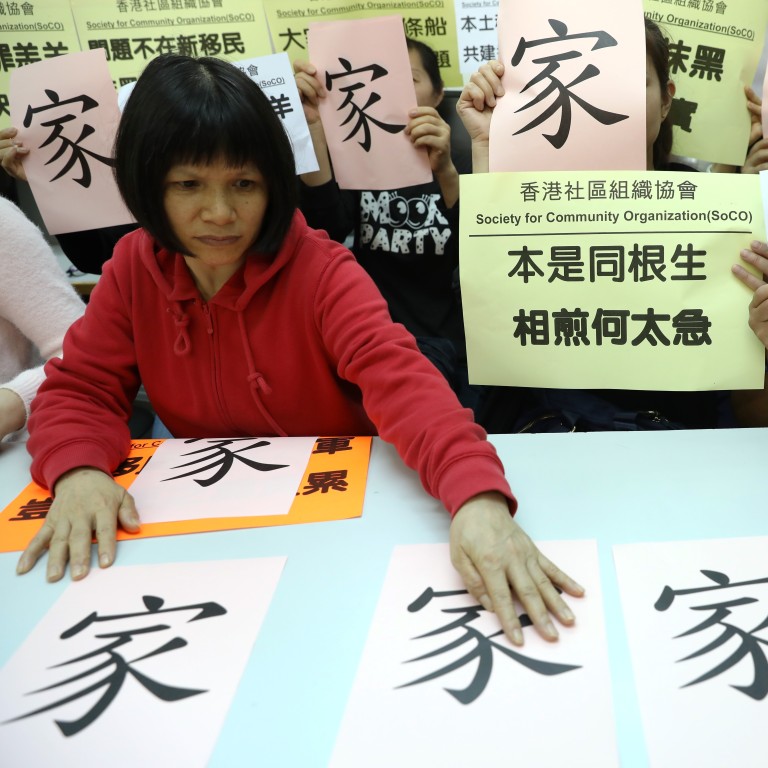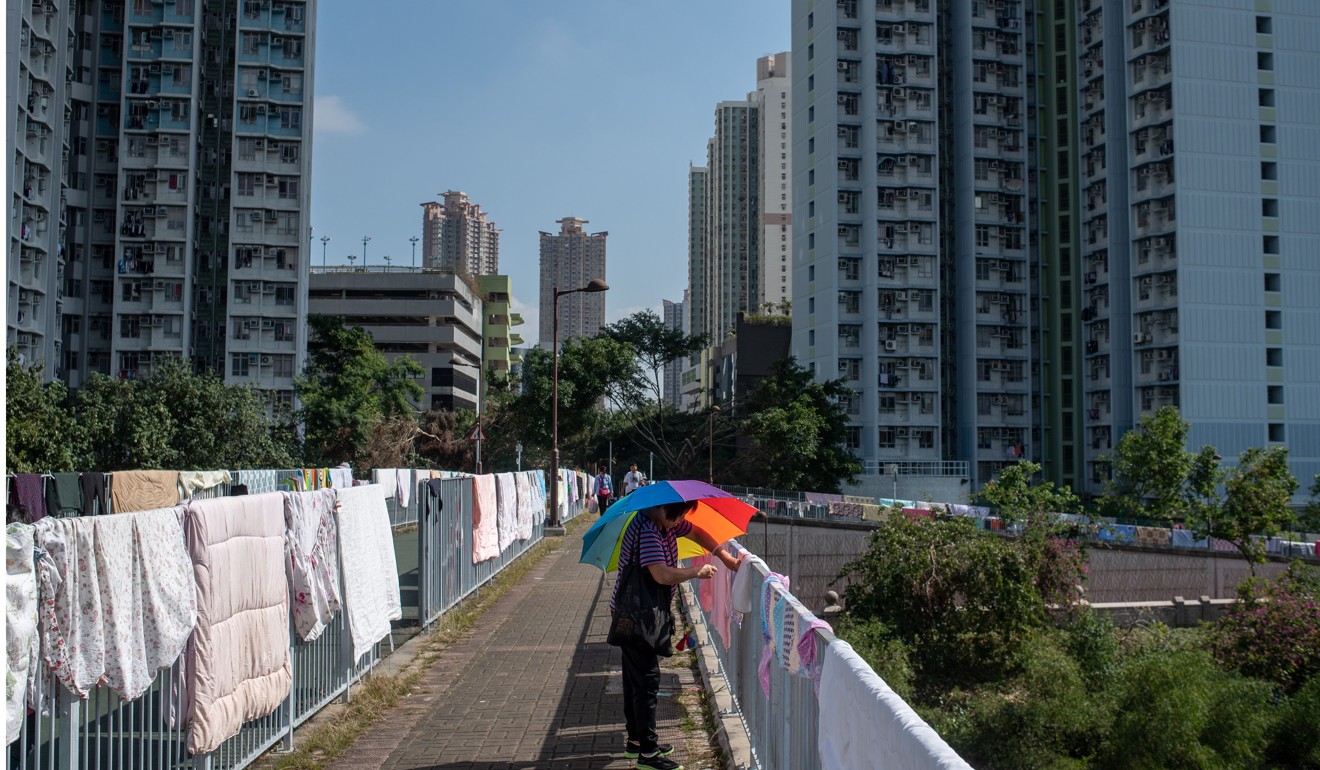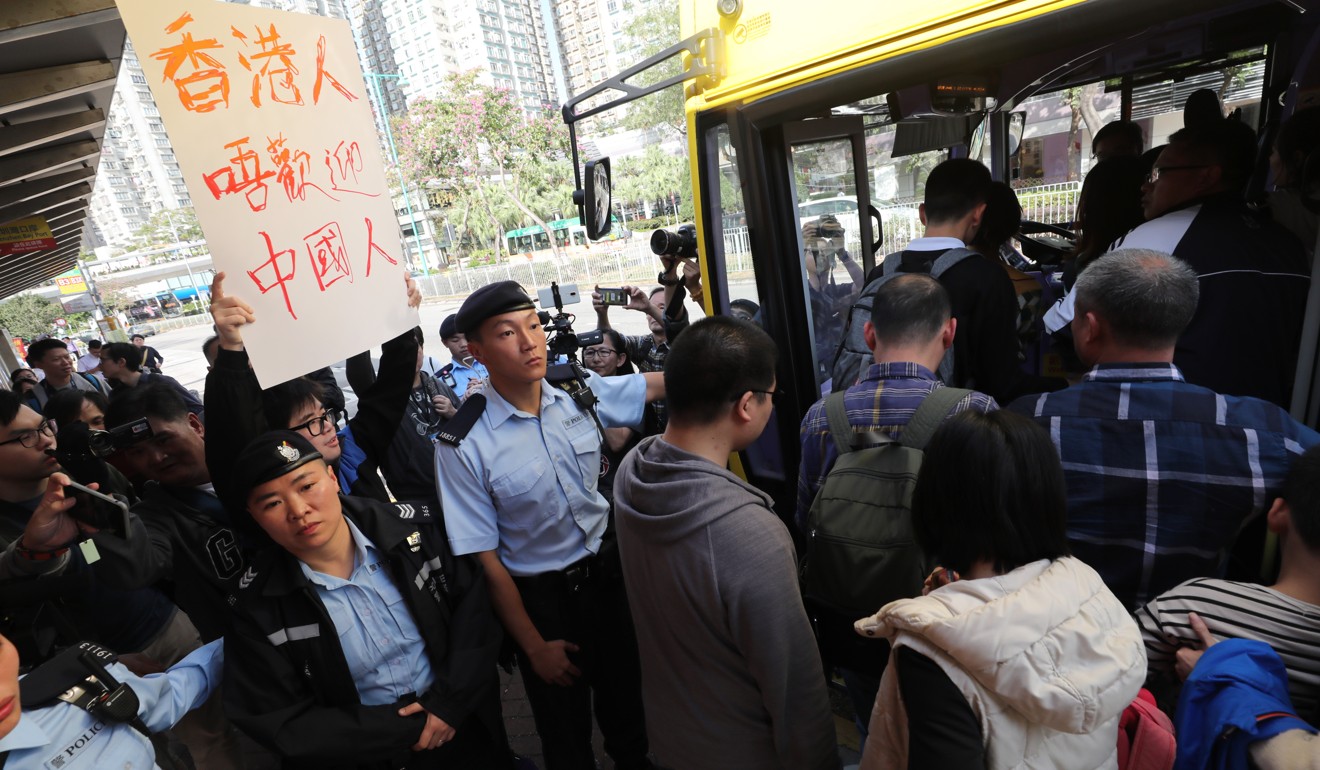
Don’t blame new migrants from mainland China for Hong Kong’s housing and health care woes, rights groups say while calling for race hate law
- Groups also accuse some local politicians and professionals of playing ‘politics of hatred’
- Society for Community Organisation says new mainland migrants work hard and do not drain public resources
Rights groups have called for a race hate law in Hong Kong as new migrants from mainland China are being accused of “eating up” the city’s resources although most work for a living.
The Society for Community Organisation (SoCO) and the New Immigrants Mutual Aid Association also accused some local politicians and professionals of playing the “politics of hatred”.
They said new mainland migrants worked hard and did not drain public resources. The groups cited a 2013 government consultation document on population policy that 70 per cent of the migrants worked and had taken up low-skilled jobs.
Hongkongers tell mainland shoppers: go home, you’re not wanted here
And only 3 per cent of them lived on public assistance.
“We are extremely disappointed that even some professionals and politicians also made discriminative allegations before having studied the data,” Sze Lai-shan, of SoCO, said on Sunday.
She called for a race hate law.

At present, there is a race discrimination law in Hong Kong. But this does not cover prejudice against mainland people by Hongkongers because the government does not recognise immigration status as a basis for racial discrimination or mainlanders as a separate ethnic group.
Debate over the influence of new migrants on Hong Kong society has heated up recently.
Civic Party lawmaker Alvin Yeung Ngok-kiu was planning to move a motion to review the one-way permit system under which up to 150 mainlanders are allowed to settle in Hong Kong every day.
Dr Alfred Wong Yam-hong, a cardiologist at Tuen Mun Hospital, recently told a television news programme that the one-way permit scheme was a source of overcrowding at public hospitals.
Fears of holiday influx rejected as tour group numbers expected to fall
Wong said he heard from some fellow frontline doctors that many mainlanders visited public hospitals in Hong Kong to ask for kidney dialysis right after they arrived on one-way permits.
Sze, without naming names, said: “The criticisms seemed to target the one-way permits. But we know the hidden message was that they wanted to turn away all new migrants.”
Demand for new homes in Hong Kong ‘grossly underestimated’
She also cited Census and Statistics Department figures that in 2016 there were about 166,000 new migrants “ordinarily” living in Hong Kong, down from 217,000 in 2006. And the median age of the new settlers, according to SoCO, was 33.9, well below Hong Kong’s overall median age of 44.3.
“They are young people, and 70 per cent are making a living by working in low-skilled jobs,” Sze said. “That new migrants are here eating up Hong Kong’s social resources are dumb comments.”

“Even if we get rid of all new migrants, the problems will not be solved,” Sze said.
New Immigrants Mutual Aid Association chairwoman Li Meiai, who settled in Hong Kong 20 years ago, supported an anti-race hate law, saying discrimination against new migrants had got worse.
‘I feel like I could work to death’: weary nurses share tales of toil
She also accused some politicians of trying to conflate an influx of mainland tourists with the migrant issue to incite hatred.
Rejecting the criticism, Yeung said: “I don’t think promoting public discussion of our population policy should be regarded as promoting hatred.
“And if paying attention to the pressure put on our health care system or education system should be regarded as promoting hatred, it is not a fair comment.”
Why Chinese tourists prefer Australia, Japan and Singapore over Hong Kong
Roy Tam Hoi-pong, of the localist party Neo Democrats, said: “SoCO seems to care more about the welfare of mainlanders than that of Hong Kong people.
“Are they trying to deny the common sense conclusion that with more people coming in, it will drain our resources?”

